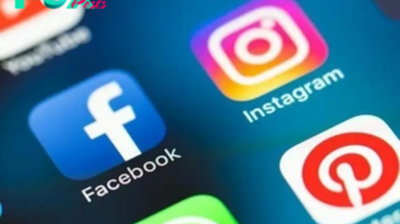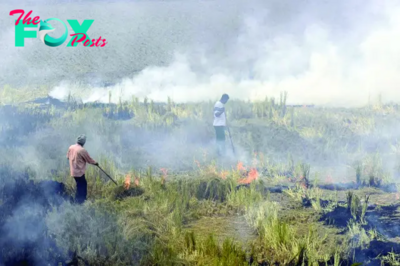Technology
China deletes 1.4 million social media posts in crackdown
China's cyberspace regulator said 1.4 million social media posts have been deleted following a two-month probe into alleged misinformation, illegal profiteering, and impersonation of state officials, among other "pronounced problems".
The Cyberspace Administration of China (CAC) said in a statement on Friday it had closed 67,000 social media accounts and deleted hundreds of thousands of posts between March 10 and May 22 as part of a broader "rectification" campaign.
Since 2021, China has targeted billions of social media accounts in a bid to "clean" its cyberspace and make it easier for authorities to control.
The latest crackdown targeted accounts on popular Chinese social media apps including WeChat, Douyin, and Weibo that fall under the category of "self media," a term that broadly refers to accounts that publish news and information but are not government-run or state-approved.
Beijing frequently arrests citizens and censors accounts for publishing or sharing factual information considered sensitive or critical of the Communist Party, the government or the military, especially when such information goes viral.
Of the 67,000 accounts that were permanently closed, almost 8,000 were taken down for "spreading fake news, rumours, and harmful information," according to CAC.
Around 930,000 other accounts received less severe punishments, from being removed of all followers to the suspension or cancellation of profit-making privileges.
In a separate campaign, the regulator recently closed over 100,000 accounts that allegedly misrepresented news anchors and media agencies to counter the rise of online fake news coverage aided by AI technologies.
The CAC on Friday said its latest campaign had targeted almost 13,000 counterfeit military accounts, with names such as "Chinese Red Army Command", "Chinese Anti-terrorist Force" and "Strategic Missile Force".
Some 25,000 other accounts were targeted for impersonating public institutions, such as disease and prevention control centers and state-run research institutes.
Almost 187,000 were punished for impersonating news media businesses, while over 430,000 allegedly offered professional advice or educational services without having relevant professional qualifications.
Around 45,000 accounts were closed for "hyping hot issues, clout-chasing and illegal monetisation."
The regulator said it had "actively coordinated with public security, market supervision and other departments, to deliver a heavy blow and rectify illegal 'self-media'."
"At the same time, (we) also call on the majority of netizens to actively participate in monitoring and reporting (illegal 'self-media'), provide clues ... and jointly maintain a clean cyberspace," it added.
-

 Technology13h ago
Technology13h agoOpioid-free surgery treats pain at every physical and emotional level
-

 Technology13h ago
Technology13h agoMeat has a distinct taste, texture and aroma − a biochemist explains how plant-based alternatives mimic the real thing
-

 Technology3d ago
Technology3d agoAI harm is often behind the scenes and builds over time – a legal scholar explains how the law can adapt to respond
-

 Technology3d ago
Technology3d agoAwkwardness can hit in any social situation – here are a philosopher’s 5 strategies to navigate it with grace
-

 Technology3d ago
Technology3d agoNo need to overload your cranberry sauce with sugar this holiday season − a food scientist explains how to cook with fewer added sweeteners
-

 Technology4d ago
Technology4d agoThere Is a Solution to AI’s Existential Risk Problem
-

 Technology4d ago
Technology4d agoUS pushes to break up Google, calls for Chrome sell-off in major antitrust move | The Express Tribune
-

 Technology4d ago
Technology4d agoPublic health surveillance, from social media to sewage, spots disease outbreaks early to stop them fast



























